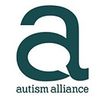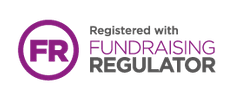Masking - Mimi's Experience
For Mimi, masking comes with its positives and its negatives. Following a late diagnosis, she realised she had been subconsciously masking her neurodivergent traits throughout her whole life.
Like many others, it delayed her diagnosis, preventing crucial understanding and support. In some cases, it can even lead to a missed diagnosis entirely.
After spending most of your life crafting a ‘character’ and pretending to be someone else, challenges with identity might emerge and it can create a disconnect with your sense of self.
She said: “So I start to have an identity crisis, and you think, is this me? Is this the autism? Am I faking it? Am I faking the autism? How have I gone 22 years without being diagnosed? So that’s how powerful masking can be.”
The lines become blurred – and you no longer know what’s real and what’s not.
She added: “Masking is quite a protective thing. It protects me from social situations that could go wrong. But masking is also incredibly tiring and it takes up so much mental energy, more than I actually realised, because essentially you’re playing a character every day and that’s really hard.”
Masking may reap temporary benefits, protecting individuals from judgement and mistreatment, and offering a sense of belonging and safety.
This need to change how they behave is often motivated by an environment that is not welcoming or understanding of their neurodivergent behaviours.
But in the long run, it can have damaging effects - continuous masking is not sustainable and can result in chronic exhaustion, heightened stress, and eventually burnout.
“It’s almost like you have a running commentary in your head of like, am I smiling? Am I sat up straight? Do I look like I’m listening? I am listening but do I look like I am?”
The constant self-monitoring takes up vital energy and resources which could be better expended elsewhere. Consequently, individuals are left feeling depleted. The process of unmasking is another challenge; exploring your true self and distinguishing between your masked and unmasked version can be overwhelming.
She continued: “When you live in a world that’s made for neurotypicals or allistic people, it’s really hard not to want to try to fit in. So at home, I’ve created a really great safe space and I’ve got a partner who is incredibly understanding. So that helps. That helps a lot.”
“I think I just need to be in a group of people that are genuinely understanding and not judgemental. I think I need a world with lots of sun and flowers and greenery and everyone just frolicking through the fields. I think that would be an ideal world.”
Surrounding yourself with people who are understanding is a key step in learning to accept your differences and living your true, authentic self.
On advice she would give to her younger self or another autistic person, she said: “Who cares? People are going to look at you in the street. I’m the only one that’s putting that pressure on myself. I love my job and I think I’m quite good at my job, and I think if I didn’t mask to some extent, I would not be able to do this job.”






